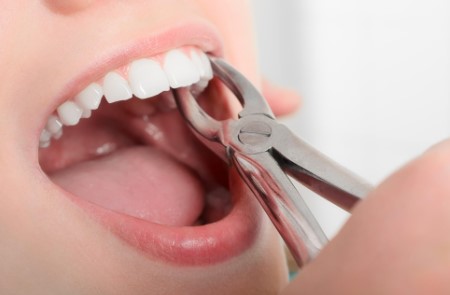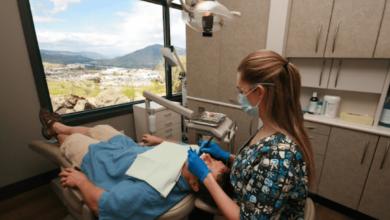Top 6 Reasons for Wisdom Teeth Extraction

Wisdom teeth, or third molars, are the last set of teeth to develop in a person’s mouth. They typically erupt between the ages of 17 and 25, a period that coincides with the gaining of wisdom, hence their name. However, despite their intriguing nomenclature, wisdom teeth often cause more trouble than they’re worth. You should consult with a Wylie, TX dentist to determine whether it is essential to remove your wisdom teeth.
Below are six compelling reasons why wisdom teeth extraction might be necessary.
1. Impacted Teeth
One of the most common reasons for extracting wisdom teeth is impaction. Impacted teeth are those that have not fully erupted into the mouth because they are blocked by other teeth or bones. This can lead to several issues, including pain, swelling, and infection. Moreover, impacted wisdom teeth can also push against neighboring teeth, causing them to shift out of alignment and potentially leading to orthodontic problems.
In fact, impacted wisdom teeth can be particularly troublesome because they are difficult to clean, making them prone to decay and gum disease. Moreover, in severe cases, cysts can form around the impacted tooth, which can damage surrounding bone and teeth.
2. Overcrowding
Many people do not have enough room in their mouths for an extra set of molars. When wisdom teeth erupt, they can crowd existing teeth, leading to misalignment. This can undo years of orthodontic work and result in an uneven bite. In fact, overcrowding can also make it challenging to maintain proper oral hygiene, as tightly packed teeth are harder to clean effectively.
Remember, removal of wisdom teeth before they cause overcrowding can help preserve the alignment of your teeth and prevent potential complications.
3. Infection and Gum Disease
Wisdom teeth are located at the back of the mouth, making them hard to reach and clean properly. This can lead to the buildup of bacteria and food particles, resulting in pericoronitis – an infection of the gum tissue surrounding the tooth. The common symptoms of pericoronitis include pain, swelling, and difficulty opening the mouth.
If left untreated, this infection can spread to other areas of the mouth and even the bloodstream, leading to more severe health issues. Extracting wisdom teeth can also help prevent these types of infections and contribute to overall oral health.
Read also: Vaping through nose after wisdom teeth
4. Tooth Decay
Due to their location at the back of the mouth, wisdom teeth are more susceptible to tooth decay. The difficulty in cleaning these teeth properly means that plaque and tartar can build up easily. This can lead to cavities and other dental problems. If the decay is too severe, it can affect the adjacent teeth as well.
Tooth decay in wisdom teeth often necessitates extraction to prevent further damage to the rest of the mouth. In many cases, dentists prefer to remove wisdom teeth preemptively before decay sets in.
5. Cysts and Tumors
Although it is rare, cysts and tumors can develop around impacted wisdom teeth. A dental cyst is a fluid-filled sac that can form next to an unerupted tooth. These cysts can grow over time, causing significant damage to the jawbone and adjacent teeth. In extreme cases, these cysts can develop into tumors, which may require complex surgical procedures to remove.
Removing wisdom teeth can also prevent the formation of cysts and tumors, thus safeguarding the integrity of the jawbone and overall oral health.
6. Pain and Discomfort
One of the most straightforward reasons for wisdom teeth extraction is the pain and discomfort they can cause. As wisdom teeth try to erupt, they can cause significant pain in the surrounding gums and jaw. This discomfort can be persistent and impact daily activities such as eating, speaking, and sleeping.
Even if wisdom teeth partially erupt, they can still cause discomfort due to their awkward positioning and the pressure they exert on other teeth. So, extracting wisdom teeth can alleviate this pain and improve the quality of life for many individuals.
Conclusion
While wisdom teeth can sometimes emerge without causing any issues, they often bring a host of problems that can affect overall oral health. If you are experiencing any of these issues or are concerned about potential future complications, it may be wise to consult with your dentist about the possibility of removing your wisdom teeth. Remember, proactive extraction can prevent more severe dental problems down the line, ensuring a healthier, more comfortable mouth.




